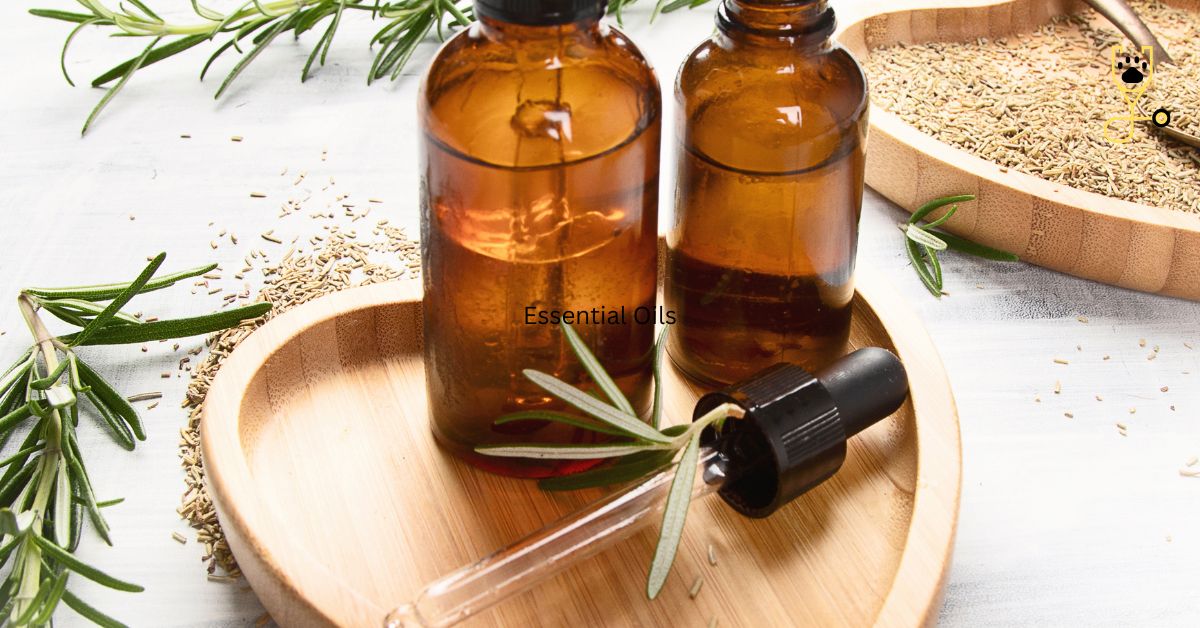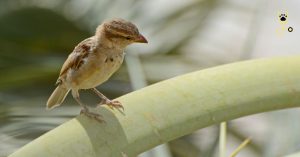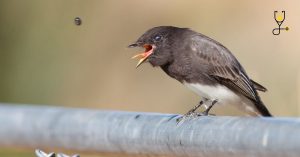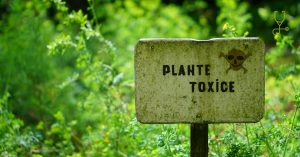Do you love your bird, but are concerned about what chemicals and products to use around them? Essential oils for birds can be a great solution that not only smells amazing but has long-term health benefits. Whether you’re looking to improve air quality or just want to relax with some aromatherapy, essential oils have many natural properties that make them safe and beneficial for birds. In this blog post, we will discuss 9 facts about essential oils and how they can enhance the lives of our feathered friends! From understanding their safety tips to exploring the different scents available on the market today, you’ll learn everything you need to know about using these natural solutions in your birds’ environment.
1. What are Essential Oils?
Essential oils are highly concentrated plant extracts that contain the chemical compounds responsible for giving particular plants their unique scent and flavor, as well as medicinal or therapeutic qualities. They are often sourced through a process of distillation, which involves steaming and condensing the oil from its source material. Some of the most popular essential oils used in aromatherapy include lavender, peppermint, eucalyptus, lemon, tea tree, and rosemary.

2. Are Essential Oils Safe for Birds?
When properly diluted and used in moderated amounts, essential oils can be safely used around birds without putting them at risk of any toxic substances or chemicals. However, birds are more sensitive to essential oils than humans, so it’s important to follow the instructions provided on the product packaging and seek advice from your avian veterinarian before introducing any new products into your bird’s environment.
3. Benefits of Essential Oils for Birds
Reduce Stress & Anxiety: Certain essential oils can help to reduce stress and anxiety levels in birds, which may be caused by factors such as changes in their environment or other animals.
Purify Air Quality: Essential oils are often used for aromatherapy purposes as they contain naturally occurring compounds that act as a natural disinfectant and deodorizer, helping to purify the air quality in your bird’s home.
Reduce Toxins: Essential oils can also be used to reduce the number of toxins present in the air around your bird’s cage, which can come from sources like smoke, paint fumes, dust mites, and pet dander.
Boost Mood: Aromatherapy with essential oils can also be used to boost your bird’s mood and create a pleasant, calming atmosphere in its environment.
Also read: 9 Tips to Help Your Bird Gain Weight
4. Safe Uses of Essential Oils for Birds
Essential oils can be safely used around birds as long as they are properly diluted before use and used in moderated amounts. For best results, it is recommended to dilute the oil with another substance like coconut oil or jojoba oil before applying it to your bird’s skin or feathers. It is also important not to apply essential oils directly onto your bird’s feathers, as this could cause irritation or damage them over time. Additionally, never leave essential oils within reach of your bird as he may ingest them and potentially become sick from the toxic compounds.
5. Tips for Using Essential Oils Around Birds
When using essential oils around birds, it is important to keep the following safety tips in mind:
• Always dilute essential oils with a carrier oil before use
• Use essential oils in moderated amounts and avoid inhalation of the vapor directly from the bottle
• Keep essential oils out of reach of your bird at all times
• Do not apply essential oils directly onto feathers or skin without proper dilution first
• Avoid using any products containing synthetic fragrances or chemicals near your bird’s cage.
6. Popular Essential Oils for Birds
Some of the most popular aromatherapy scents used with birds include lavender, peppermint, tea tree, eucalyptus, lemon, and rosemary. Keep in mind that the scent of essential oils can be quite strong for birds and it is a good idea to start out with small amounts before gradually increasing your bird’s exposure.
By following these tips and taking precautionary measures when introducing essential oils into your bird’s environment, you can safely reap the benefits of aromatherapy without putting your feathered friend at risk. Since every bird reacts differently to different scents and formulations, it is always best to seek advice from your avian veterinarian before introducing any new products or treatments into its environment. With a little bit of knowledge and care, essential oils can be used as a safe and natural form of aromatherapy to create a calming atmosphere in your bird’s home.

Bonus Content
Additionally, it is important to note that essential oils should only be used topically on birds, not internally. Never give essential oils orally or apply them directly onto feathers as this could cause irritation or damage the feathers over time. When diffusing essential oil into the air, ensure that there is proper ventilation to avoid any adverse reactions from inhalation of too much-concentrated vapor. Finally, keep in mind that different bird species may respond differently to certain scents, so it is best to consult with your avian veterinarian before introducing any new treatments or products into their environment. By following these guidelines and taking precautionary measures, aromatherapy with essential oils can be a safe and effective way to improve the quality of life for your feathered friend.
>Conclusion
Essential oil aromatherapy is an effective and safe way to improve the air quality and mood in your bird’s home, but it should always be done with caution. Dilute essential oils before applying them topically or diffusing them into the air, keep them out of reach of your bird at all times, and consult your avian veterinarian before introducing any new treatments or products into their environment. With diligence and care, you can safely harness the power of aromatherapy to bring balance to your bird’s home!

Frequently Asked Questions
Yes, when used correctly and with precautionary measures in place. Always dilute essential oils before use, avoid inhalation of the vapor directly from the bottle, keep essential oils out of reach of your bird at all times, and do not apply them directly onto feathers or skin without proper dilution first. Additionally, never give essential oils orally, and ensure there is proper ventilation when diffusing them into the air.
Some popular aromatherapy scents used with birds include lavender, peppermint, tea tree, eucalyptus, lemon, and rosemary. Keep in mind that the scent of essential oils can be quite strong for birds and start out with small amounts before gradually increasing your bird’s exposure.
If you notice any signs of discomfort in your bird such as ruffled feathers, reduced appetite, or changes in behavior after introducing essential oils into its environment, discontinue use immediately and contact your avian veterinarian right away. Additionally, be sure to consult them first before introducing any new products or treatments into its environment.
Yes, some other ways to improve the air quality and mood in your bird’s home include natural plants such as lavender and eucalyptus, providing plenty of toys and perches for mental stimulation, diffusing water or air purifying stones instead of essential oils, and playing calming music. Additionally, you can also consult with your avian veterinarian about other safe methods to use aromatherapy with your bird. With a little bit of knowledge and care, you can create a calming and stress-free environment for your feathered friend!
Yes, always remember to research any new product or treatment before using it with your bird, as some natural ingredients may be toxic if ingested. Additionally, different bird species may react differently to certain scents, and it is best to consult with your avian veterinarian first before introducing any new treatments or products into their environment. With diligence and care, essential oil aromatherapy can be a safe and effective way to improve the quality of life for your feathered friend!








